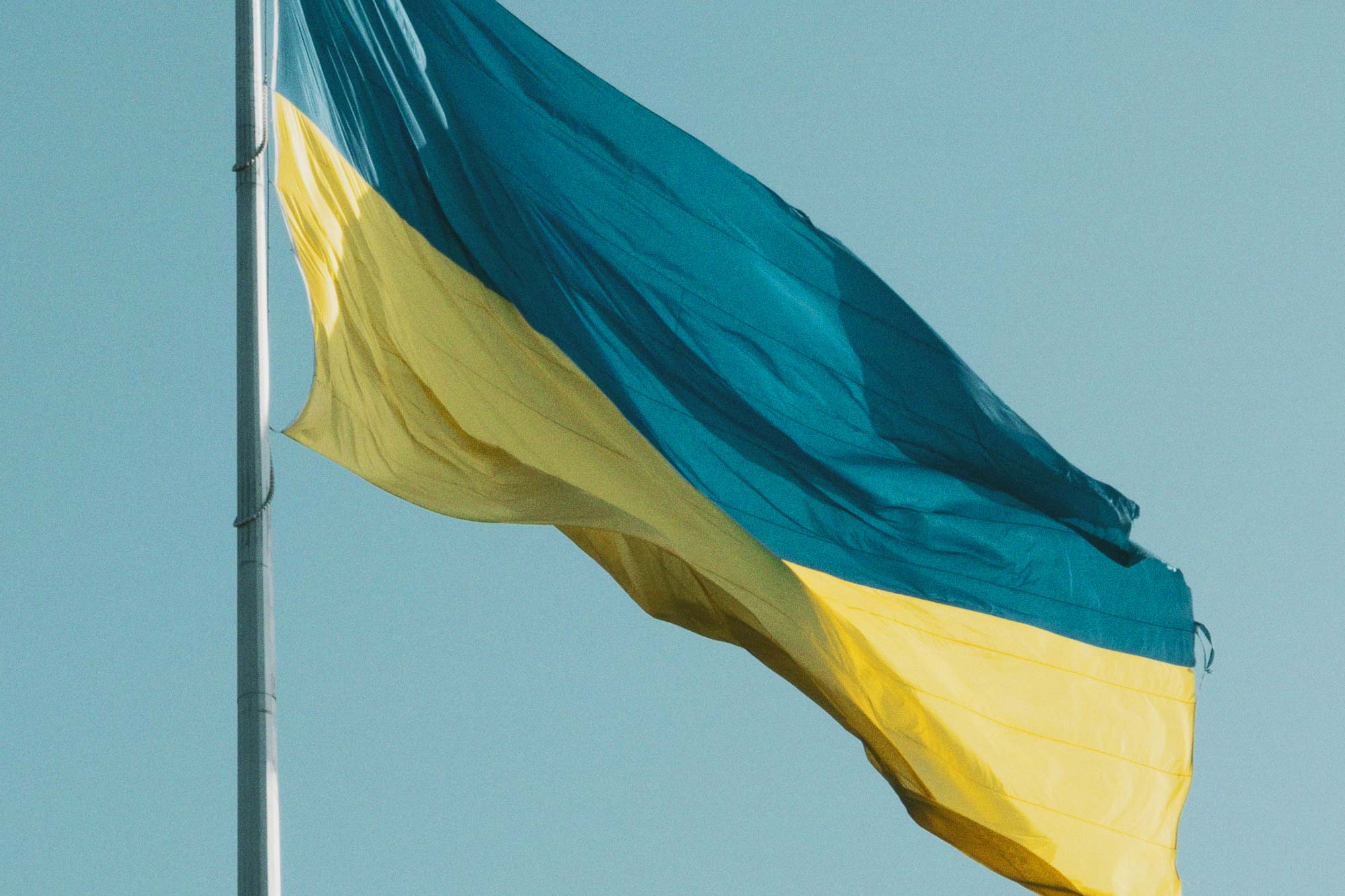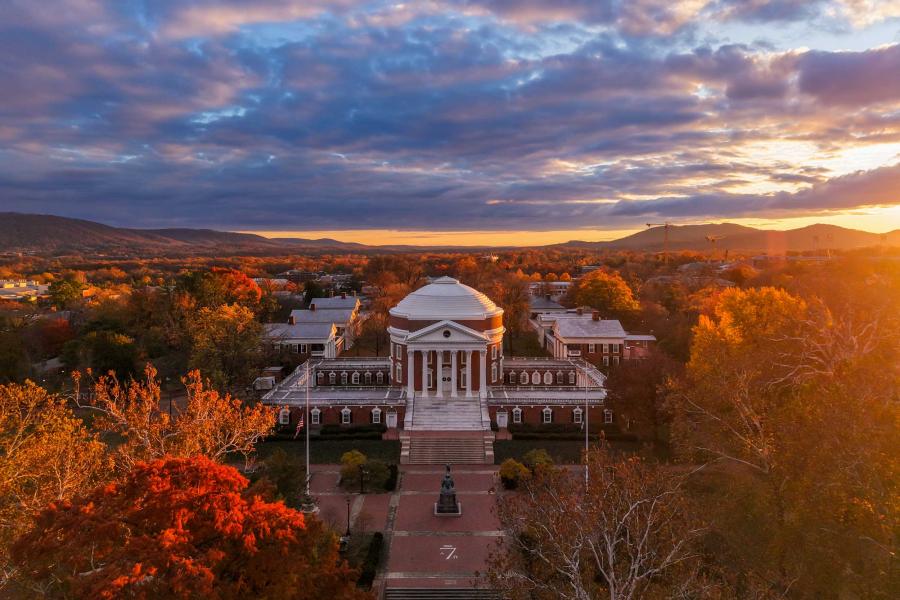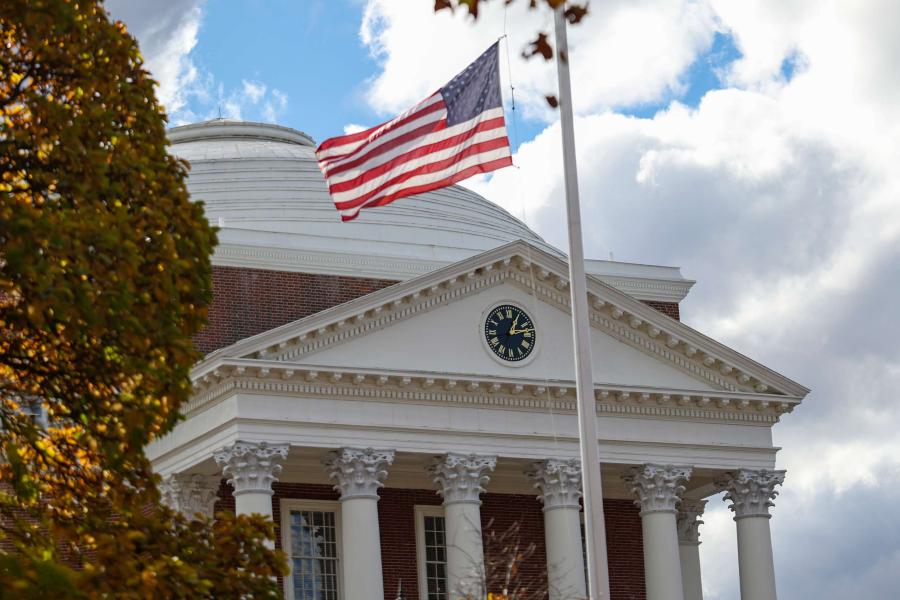If American democracy is to survive, its political parties and electorate need to focus on reality-based policy discussions and not on fantasies of international cabals and conspiracies hatched and propagated on social media, two former Virginia congressmen told a Miller Center audience on Wednesday.
Former congressmen Tom Perriello, a Democrat, and Republican Denver Riggleman both served in Virginia’s 5th Congressional District. They made their comments at “Battling for Democracy in Ukraine,” part of the Democracy Dialogues series produced by the University of Virginia’s Karsh Institute of Democracy with the goal of strengthening democracy through civil debate.
What’s happening in Ukraine has connections with threats to U.S. democracy from today’s divisive politics, the speakers said.
The series and the event are co-sponsored by the Miller Center and made possible by the support of the George and Judy Marcus Democracy Praxis Fund, Ingrid and David Hang, and former UVA Rector James B. Murray Jr.
“The very first Democracy Dialogue was hosted by Larry Sabato and it happened to coincide with the attack on the Capitol on Jan. 6, 2021,” UVA President Jim Ryan said when introducing the panelists, which also included moderator Ann Compton, a former news reporter and White House correspondent for ABC News.






